Affiliate disclosure: This post may contain affiliate links. Please see our Privacy Policy.
When we found our off-grid homestead, we knew next to nothing about off-grid systems. We wanted to move to land in the country with room to stretch out, and we knew plenty about growing and preserving our own food.
The thing is, it’s hard to find a property that’s remote and private that also has a grid connection. Or, more specifically, it was hard to find an affordable homestead with privacy.
We had a lot of preconceived notions about off-grid property. And there are a lot of things I wish we would have known going in.
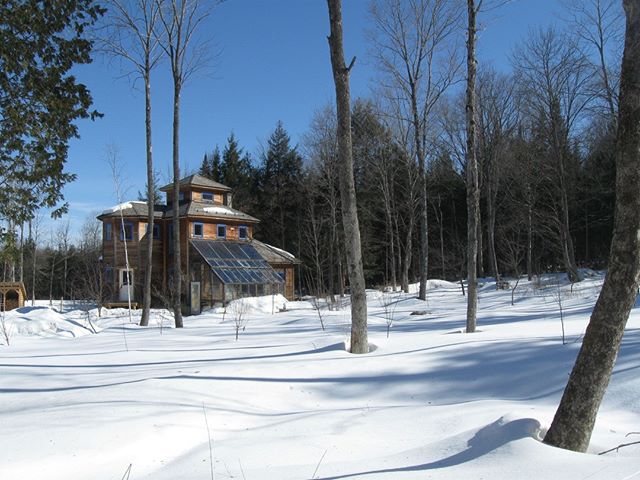
Off-Grid Systems are Reliable
That seems pretty basic, right? Not quite.
We assumed off-grid systems were inherently unreliable. If they worked all the time, who would bother having an electric bill?
When our system broke down, which it did constantly during our first year here, we assumed it was par for the course. We’re constantly going to have to be troubleshooting. We’ll have to watch it every day, and carefully ration every bit of power.
We’d talk about our troubles to our electrician, and they’d just shake their head. All your problems are because you’re off the grid. There’s nothing wrong with your system, they just don’t work well. Over and over that’s what we were told.
One of our charge controllers was malfunctioning, and not regulating the charge to the batteries. Our batteries were constantly overvolting, and we’d have to rush trying to run down the power.
In mid-summer, we had so much surplus power that we’d run a countertop oven, induction burner, dishwasher, clothes washer and electric chainsaw…at the same time. And we’d still risk overcharging the batteries.
How on earth do people do this? We always assumed that winter would be the hard part, but since our system was malfunctioning, summer was impossible. Constantly too much electricity, and every person we talked to, even solar system installers, laughed and said that was a good problem to have.
Eventually, the charge controller started malfunctioning in a different way. Instead of dumping too much power into the batteries, it started draining the batteries at night.
Anytime charge wasn’t coming in, it decided it needed to drain the batteries by dumping power into our backup electric water heater. That’s what it should have been doing in high summer daytime.
This malfunction was easier to see. We’d be out of power in the morning and that was a problem.
We stayed up the next night, and watched around midnight the charge controller kick on and begin draining the batteries for no reason. Obviously, that was a problem.
We ordered a new charge controller, in total it cost about $140 and quickly replaced the bad one. That solved everything.
No more overvolting. No more chaos. A quick fix and our system worked.
Had we known that systems are supposed to be reliable, we wouldn’t have accepted the year of chaos that came before.
If it’s not working, fix it. It should work. Seems simple, but not if you’ve been conditioned to believe that off-grid life should be hard.
Too Much Electricity is more Common than Not Enough
All that chaos in the summer months when our charge controller wasn’t working taught us a few things. We produce a lot of electricity in the summer, and we would never have known quite how much if our charge controller had been working correctly. It would have just dumped it or turned off the panels, letting all that surplus go to waste.
It’s not just the summer months. Even in Vermont, we had plenty of electricity 9 months of the year. From late February through late November, we never touched the generator, and ran electric appliances at will.
We actually invested in more electric appliances to make use of all the free electricity we have 9 months of the year.
A plug-in electric car would almost make sense, but only it’d have to be one with a high ground clearance so we could actually drive around here on the rutted dirt roads. In “mud season” you can sink knee-deep right in the middle of a public highway, so a high clearance and 4 wheel drive are pretty essential.
You Don’t Have to Give Up Luxuries to Live Off-Grid
We assumed that off-grid life was hard and that we’d constantly be short on power and going without. We had an antique waffle iron, a family heirloom passed down through several generations. It pulled 1400 watts.
We packed it up, assuming we’d never be able to use it again.
Other things were given away, like our food dehydrator and blender. Too much power, or so we assumed.
Not only are we able to use those 9 months of the year without issue, we actually use them much more often. We make waffles every week in the summertime, sometimes more often than that.
We’ve found that once everything is working properly, as it should have been from the beginning, that our life here is actually full of some pretty extravagant luxuries we never experienced in a suburban house.
I really wanted to dispel the myth that off-grid living has to be grueling and backbreaking, so I wrote about all the off-grid luxuries were able to run. Everything from a whirlpool tub to a dishwasher.
What makes the biggest difference for me though? Radiant heat and super insulation. I’ve never been warmer in the winter than living here.
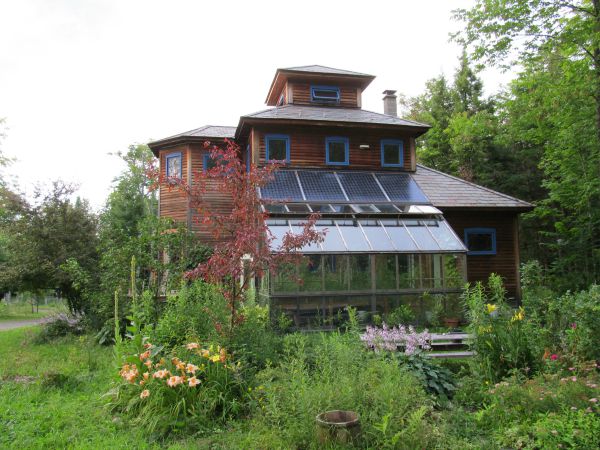
DC Appliances are a Lifesaver
I was a bit confused by our DC appliances at first.
I remember learning about AC and DC electric in high school physics. AC or “alternating current” runs on power lines, and it’s what comes into standard wall outlets. The electric current is in a sine wave that allows it not to lose as much as it travels over long distances.
DC or “direct current” is the current that comes from batteries, and though it can’t really travel any great distance, it’s more efficient to use because you don’t have to use up power creating a sine wave.
Solar panels create DC power and it goes into your batteries as DC power. To use a standard appliance or lighting, it has to be converted into AC power by an inverter. That inverter step wastes a lot of electricity and just having the inverter running creating power in case you need it drains the batteries.
Anything that’s going to run constantly, like a refrigerator, or that needs to run at night, like lighting, is much better off as DC power. That means you can turn off the inverter if you need to conserve power.
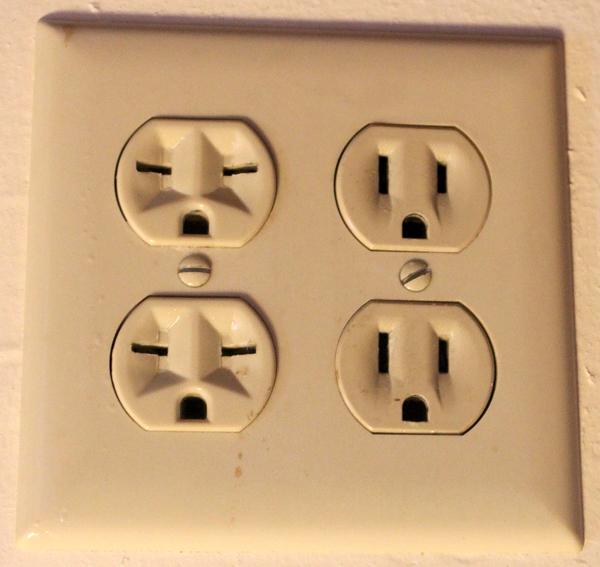
Sometimes in the wintertime, things get pretty lean around here. The panels are high up on the roof and one ice storm can coat them completely and leave us without power generation for weeks.
When that happens, we do run the generator, but we also go into survival mode. The generator is the least dependable part of the system, and we conserve power in any way possible.
With the inverter shut off, we use almost no power at all to run the lights, refrigerator and 2 DC chest freezers. All those together burn less power than a standard AC incandescent bulb. We can limp along like that for weeks, which has saved us a time or two.
DC appliances at first seemed like a hassle. What if they break? They’re expensive to replace and it’s almost impossible to find someone to help fix them.
Luckily they’re built to last. Our refrigerator is 25 years old and going strong.
After living off-grid I can truly say I’m grateful for them, and if I had to do it again I’d spend the extra money in a heartbeat.
Off-Grid is Harder with Kids
Somehow, don’t ask me why, I had the romantic notion that living off-grid would be easier with kids. Don’t they always say that in grandma’s day kids were an asset? Extra hands to help with chores?
Now that our first is almost 3 and starting to do a substantial amount of pitching in, I can see that children are an asset, but babies are impossible. It was incredibly stressful to plan for an off-grid home birth in the wintertime. Beyond that, caring for an infant while keeping a woodstove going and handwashing soiled baby clothes because the generator’s down will really put a damper on your “can do” spirit.
Add in lack of sleep, and you’ve got a recipe for incredible stress and tension.
Romantic notions aside, there’s nothing easy about raising kids, let alone infants. If you think taking the iPhone out of their hands suddenly solves everything you’ll find that regardless of the circumstances, raising another human being is never easy.
There are many times I think about the fact that electricity has only been around for a relatively short time in human history, and somehow everyone survived. Diapers were changed, dinner found its way to the table and life went on.
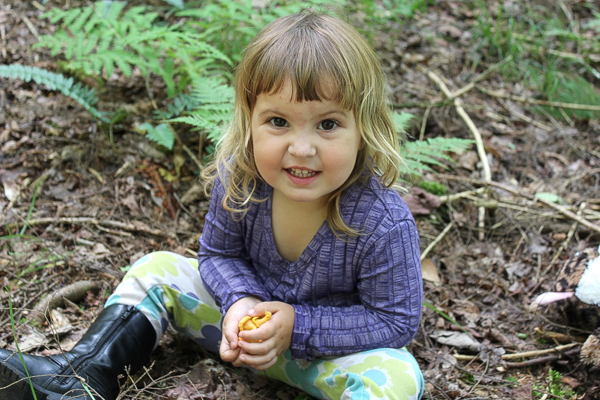
Off-Grid Enforces Seasonal Living
I grew up in California, and I honestly thought that January 1st was the first day of spring. I wasn’t quite sure what spring was since every day was just about the same.
When I moved to Vermont at 17, I quickly fell in love with the rhythm of life and the changing of the seasons. When you know that each season will be over soon, there’s more incentive to make the most of it. I’d lived in Vermont for nearly a decade before we moved off the grid, and I thought I had learned a thing or two about seasonal living.
I learned quickly that while I had seen the seasons, I hadn’t really experienced their full meaning. When you’re dependent on the sun for power to cook dinner or wash dishes, you notice every cloud that moves across the sky.
The type of snow on any given winter day has a different meaning. How will it stick to the panels? How will this affect our lives?
Every day, you’re conscious of the weather, and you’re conscious of the world around you in a way that I hadn’t really imagined I could be.
Off-grid living has changed our lives, not only on a day-to-day level but on a more metaphysical level. The way we think, the things we notice and most importantly the things that are important to us.
I had imagined hard work, but I hadn’t imagined it would change how I saw the world in such a profound way.
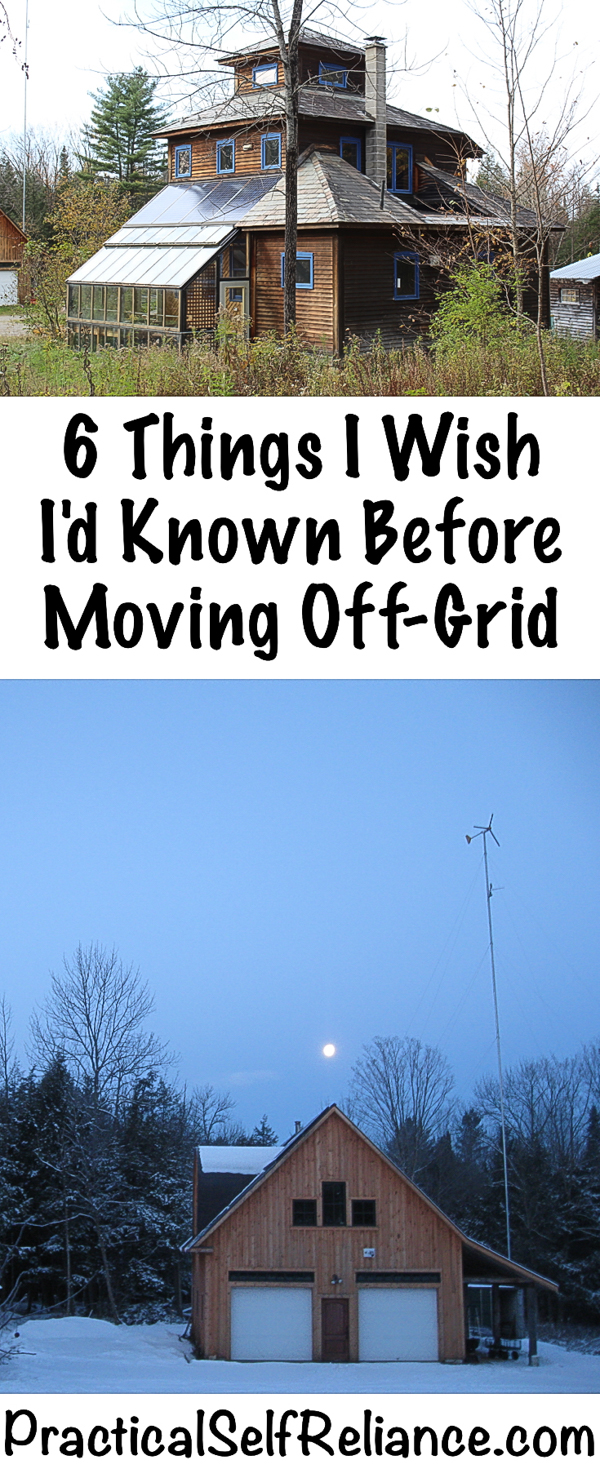
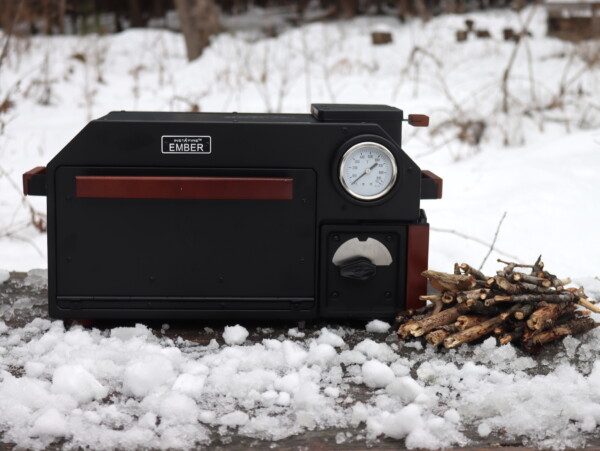
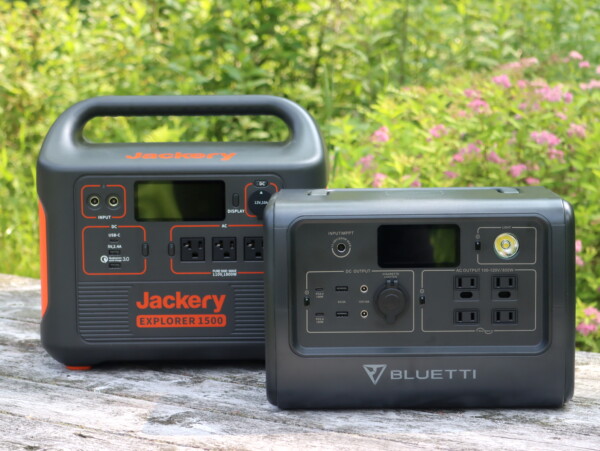
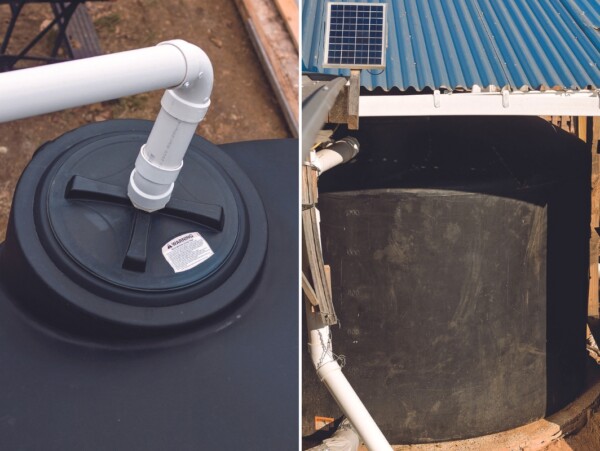
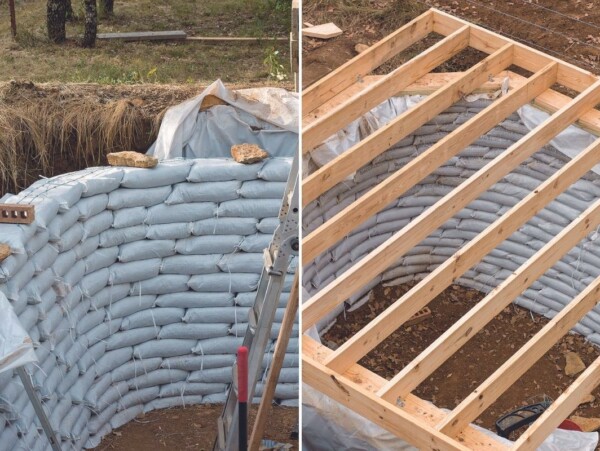
If the snow isn’t the super sticky time, would an electric charged leaf blower remove the snow?
We do this to clean our roof after hurricanes. We leaf blow it down cause we’re too chicken $%*^ to get onto the roof itself (ladder is scary enough for me!).
I have some friends up in Vermont and they said move on up here, it’ll remind you of the places you’re homesick for from growing up military (Furth, Germany… Watertown, NY etc… ). Born in Florida, most of my life now in Florida. But I hate it. Too crowded. THE HEAT. Hurricane season is a crap shoot. Off grid homes aren’t common down here.
I saw some homes that had 5+ acres and prepped to have livestock, so maybe that’s potential to have ground level solar panels facing east and west and maybe south.. But our credit score is really low right now. We’re working to death to be free of debt and I’m in the applying for disability waiting black hole.
Any advice by reply or email is welcome. I’d love to have more eyes on my situation to see things I can’t.
as the guy in the Green Mile said :”I’m tired, boss”
It’s definitely possible that the leaf blower could work. We do have several other posts on off grid living that might be helpful if you want to check them out. Just search “off grid” in the search bar and they should pop up.
Maybe a hydrogen generator and storage tank to use the excess electricity? Than a hydrogen vehicle.
Great article!
We live off grid in Northern New Mexico, and have been doing it for 11 years. We absolutely love it.
When I talk with people about living off grid, I often get the response: I could never live THAT way! It makes me wonder exactly how it is that these people think I’m living! I love my home and property. I have all the appliances that I’ve had in other grid-tied homes, except for a clothes dryer. Why don’t I have a clothes dryer? Because I don’t want a clothes dryer. I like having my laundry dry on the line outside. I also have a refrigerator, chest freezers, a modern stove/oven, and a washing machine. I have hot and cold running water, and all the modern conveniences associated with that. When I have excess electricity in the summer, I run 2 dehydrators and an evaporative cooler.
Off grid living can be done in style, or it can be done rough and dirty. The source of electricity and water does not determine a person’s lifestyle.
Well said!
I live in Ontario south of Ottawa within 10 miles of the St Lawrence River. We built our off grid home and shop 11 years ago. Our driveway is 1/2 mile long and we drive a Jeep in the winter and a Prius in the summer. I have a large garden, one part of it being raspberries, grapes, currants, gooseberry , blueberries which i just purchased last year, and hyscaps, which i purchased this year (ouch, very expensive). I need to clean up my berry, grape garden, do proper trimming , and staking and trellising. I could harvest wild grapes as we have more than we can harvest. We also have wild blueberries, which unfortunately I have not harvested due to the bugs in the woods, wild garlic (leeks), which we harvest in a friendly way to keep from losing them, fiddleheads, which i just this spring feel safe that i know what I’m doing, morels, puff balls, and shaggy manes, which should appear soon.
We love living our miniumalist lifestyle, close to nature with dog and cat. Our children are grown and live in cities, They come and visit and enjoy the starry sky, fresh food from the garden and of course family time.
We have 8 solar panels and a burgie. A small system, but enough for our lifestyle. We run a freezer, a shallow well water pump, plus computer and phone charging system and a propane water heater and on sunny days, tools in the workshop or in house, the washer, instant pot, or another devise that requires more power. We live according to the weather, running the generator when the weather is rainy, stormy, or we just need more power.
We collect rain water in large tanks in our basement, which we drink and use for washing , showering or anything else , but not for watering outside plants. Our basement also has a cold room, which is full during the winter and the rest of the basement is our “fridge”, We heat our home with an Amish airtight wood cook stove which we love. I cook on it in the winter and on a propane stove in the summer.
We have created our own piece of paradise, and are constantly learning about gardening techniques, foraging, and our envirornment.
Thank you for your information about propagating grapes, blueberries and your info about foraging. Wish you lived closer, so you could speak to my gardening group. We run seminars in the spring, although with covid, it may be a couple of years before we can pack 60 people into our community centre.
Hope you are getting the same rain we are. Our garden is enjoying it
Annette Kaldeway
You’re very welcome. So glad you are enjoying the posts. Thanks for sharing. It sounds like you have a lovely life.
We are working on buying our first off-grid home. You addressed many of the concerns I have and I am so gratfeul!! Unfortunately our place only runs on propane but plan to convert to solar as soon as we can afford it. This article gives me hope that, while it will be a definite lifestyle change, modern luxuries are still possible. Thank you!!
I’m glad! Good luck with your new home =)
Ashley: I just discovered your blog while looking up thimbleberries, and it’s a great segue! I’m eager to start inching toward more self-reliance and minimize dependence on the “consumer society”. When we aren’t seeking every material thing that ads tell us to buy, we can make do with less, and if we grow, gather, and raise our own food we won’t be “that guy” in line at Wal-Mart for every little thing. My eight kids are grown and I can confirm that every bit of love you give them while they’re young will come back to you later. While cooking or cleaning, walking outside—whatever, keep being there together learning. You sure seem to be! The converse is also true; neglecting their need for affection, attention , and just plain downtime with you will backfire as alienation. That’s much easier to avoid outside a crazy metropolis. God bless!
So much truth here. Thank you for sharing Shandor.
My wife, Bonnie, and I marvel at your writing skill. She is a native CA. I moved to CA to go to college. We met & married there. Significantly, we moved to ME. We love it. Family & friends occasionally say they’re bored (love ’em-city folk). BORED? Who has got time to be bored? There’s not enough time in a day for all the dreaming & trying new things. We are interested in solar energy, Food Forests, Pygmy Goats, Rocket Mass Heaters, Earthbag Construction, Underground Living (@ 8′ depth in our latitude is 15 degrees F + mean years temperature), Aquaponics, POSM Horses, Chinchilla Rabbits, Wallipini, Fog Water Catchment, Hydraulic Ram Pump, Permaculture, etc. May the Good Lord bless & keep you & yours. Thanks again.
Seriously! I haven’t been bored since I left California many 15 years ago. There’s so much in this life out here, and I’m right there with you =)
l Love your blog ! Your House is a dream ! will keep reading….you keep writing !
Awww…thanks Nancy!
Hi Ashley…
I really enjoyed this article. You pointed out several things that we didn’t know about the solar power. We are hoping to install solar panels this year. It would be great if we generated enough to disconnect from the grid. (fingers crossed)
I can’t tell you how much I LOVED seeing your 2 year old (at the time) daughter out mushroom hunting. She will grow up with an innate knowledge of our natural earth that others (ME) just dream of obtaining. Well Done! : )
Thank you for sharing your journey!
I really enjoyed your post.It has been making me think of putting in a solar panel system.but I have so many questions did you build your own?if not how much was the cost?how many batteries and what kind?how many solar panels do you have?please help our electric bill is getting way out of hand .
We didn’t build it, we bought it. Here’s the story of finding it: https://practicalselfreliance.com/buying-farm-finding-off-grid-homestead/
Here’s the specs for our whole system, which has information on the batteries, panels and everything: https://practicalselfreliance.com/off-grid-solar-wind-tour/